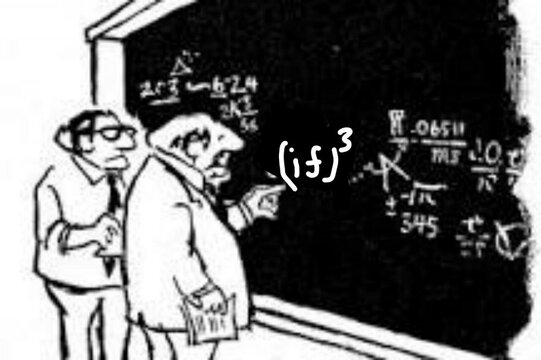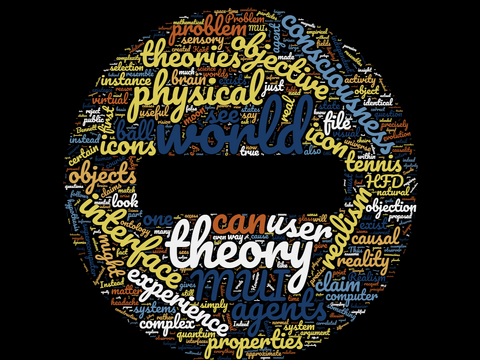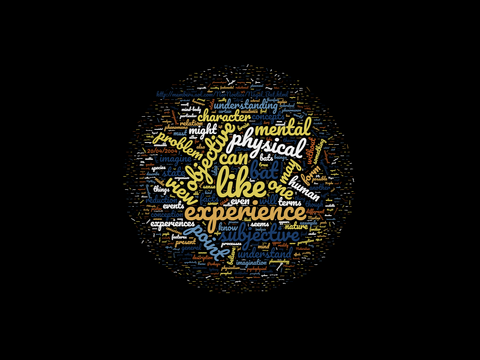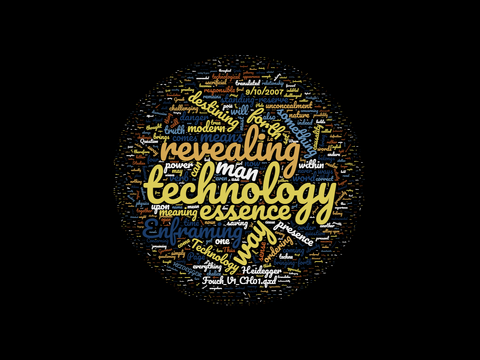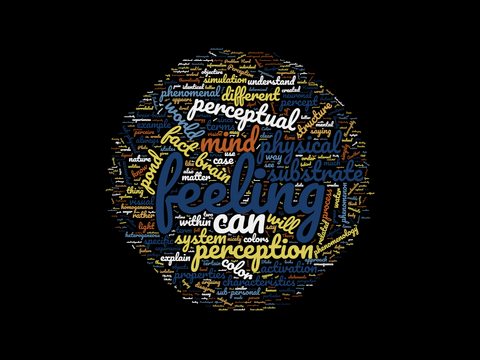Michael Allen
Paranormal Adept
Just to be clear, the use of "just is" and "nothing special" is to clarify the relationship between consciousness (feeling) and matter.
My argument is that consciousness (feeling) is not an ontologically distinct substance/substrate from matter, nor is consciousness (feeling) an irreducible substance/substrate that emerges from or "oozes" from neural or some other physical process.
Thus the claim the consciousness (feeling) just is matter and is nothing special, isn't a claim that matter is nothing special or just is something simple; it's a claim that consciousness (feeling) and matter are ontologically identical.
How this can be though is the question. The answer is that it's a matter of perspective.
---
I'm gonna toss this analogy out there and see if there's any takers...
Life is to matter as subjective experience is to consciousness (feeling).
That is, life is a process that manifests within the substrate of matter; subjective experience is a process that manifests within the substrate of consciousness (feeling).
Said differently: The mainstream thinking is that consciousness (feeling) and subjective experience arise together via neural processes in the brain.
This is akin to saying that matter and life arise together. But we know that life is a processes that arises within the substrate of matter.
I argue that so too subjective experience is a process that arises within the substrate of consciousness (experience).
Finally, extension, mass, spin, and processes such as life are properties and processes of matter as perceived from the 3rd person perspective; phenomenality/feeling and processes such as subjective experience are properties and processes of matter as experienced from the 1st person perspective.
or...we as "physically realized entities" are unable to either reduce our nature to that which we "perceive" and experience to the representations or we are unable to provide a "meaningful" our-less (US-less) narrative which is self-sufficient (i.e. a narrative w/o a narrator or listener). We keep falling into the same traps of our own beingness-contrition...which tries to "elementalize" our relations into concrete particulars and then use a framework of logic to reconstruct the entire "meaning" and "being" of those concrete particulars independent of the explicit first encounters we had with those same.
Its really, really, really...(really), almost embarrassing for me to repeat this, but the very problem we are trying to solve is the source of our ability to inject life, awareness, drama and meaning into our fundamental inadequacies." The object "we" which 'we' are trying to analyze cannot be broken down into components which are comprehensible by our same framework of understanding and comprehension.
Why? Because the very components which we are trying to find when reconstructed bring us back to the original platform of intrigue and questioning. IF you are ABLE to answer all these questions to yourself, then you cease to have the very nature which provided you the ability to formulate the question (and even be "mystified" by it). You dissect the human centroid of sentience and sentience dies...plain and simple. But in our hubris, we imagine that our abilities can reach such an end. The end of being is the end of answers--is the end of time--is the end of all movement and change. Your mind requires an unpredictable realm of relations for which you can develop the ability to "care" or to even "wonder."
It is hard for humans beings to imagine a state of being that is so derelict of being as omniscience. That is why we constantly worship such ideas and aspire to ultimate power...knowledge...because we cannot even in our best moments comprehend the undoing of our own nature. Even the saga of Christianity fulfills our need to "comprehend uncomprehension" through the mind experiment experience of temporary cessation of perfect omniscience. Logically we have no recourse but to suspend ourselves and project our abilities into the cosmos... Our inability to recognize the inner recognizer is repeated countless times...in every myth, legend, bedtime story.
The "mind" which we are so "familiar" with, is not a substance like the things ...but then again neither do we have the ultimate elemental understanding of our world--or ourselves.
An axiom I will propose might help...if you give it some thought (it may sound crazy...trust me)
Axiom of Sentience: Any being that fully understands and "groks" the background of its own existence is dead
There...that's probably not the answer most here are looking for...but nevertheless.

